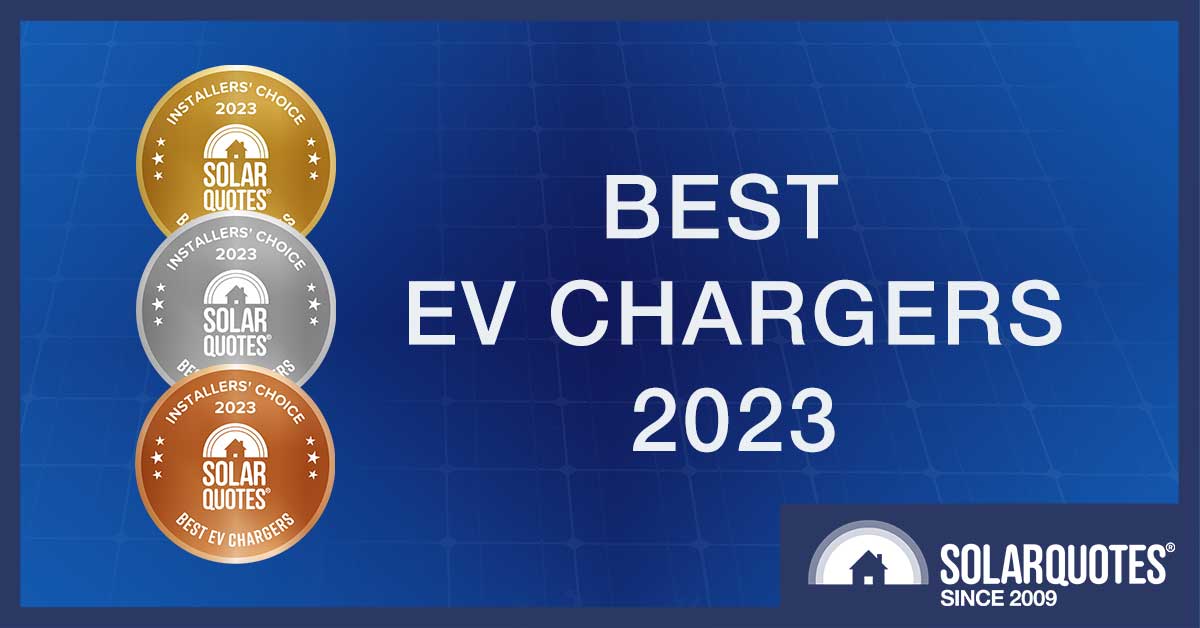
Every year we ask more than 500 installers in the SolarQuotes network which solar products they would trust in their own homes. This year, as well as asking about solar panels, inverters and batteries, we added a rapidly growing sector: electric vehicle (EV) chargers.
We asked three questions to tease out the best home EV charger brands in Australia for both big spenders and the budget-conscious:
It’s worth noting a significant number of installers voted ‘none,’ which likely reflects the relative inexperience of solar installers with EV chargers compared to solar panels, inverters or batteries. So, brands could get on the podium with very few votes.
Now, you may have noticed I’m calling these products “EV chargers,” while the technically correct term is “EVSE” (Electric Vehicle Supply Equipment). The actual charger is in the car, but since most laypeople call them “EV chargers,” I decided to keep it simple and stick with that.
Here are the results:
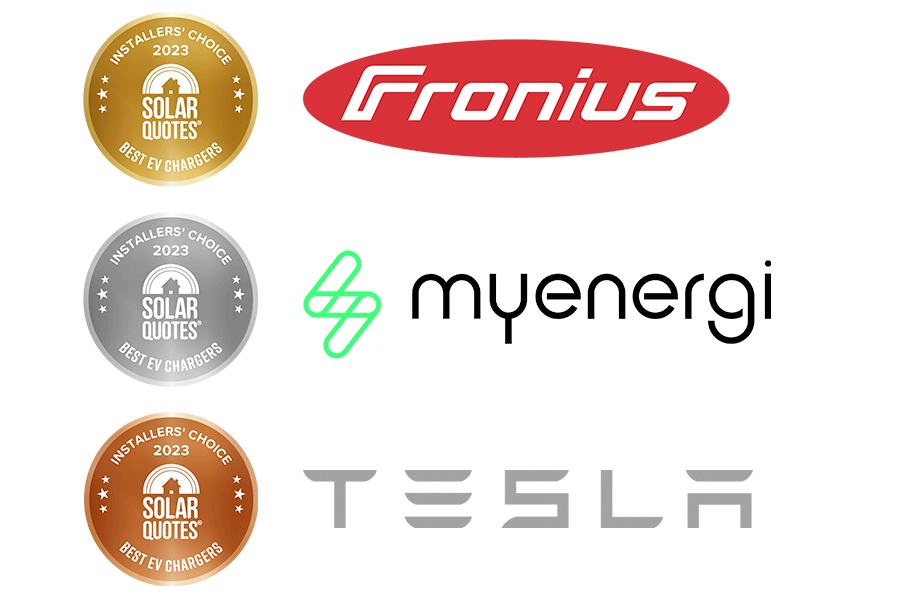
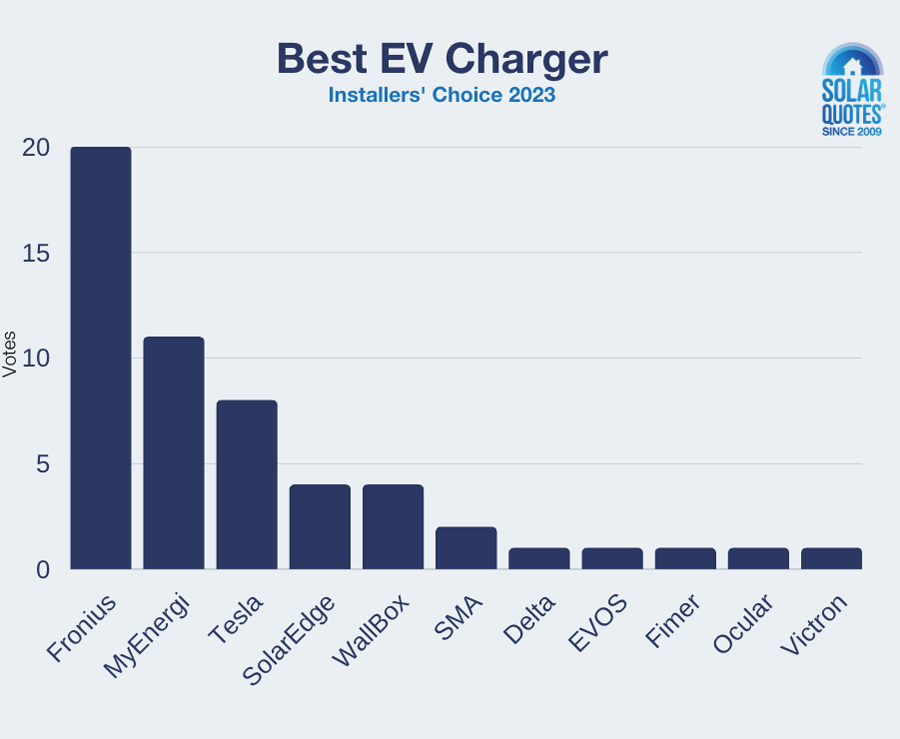
Best EV Chargers 2023 Winner: Fronius
Interestingly, Fronius is not primarily an EV charger brand. Fronius is best known for solar inverters, welding and industrial lead-acid battery chargers. But Fronius do offer the Wattpilot EV charger – which comes in 3 versions, all untethered: 11KW, 22kW, and a portable 22kW unit.
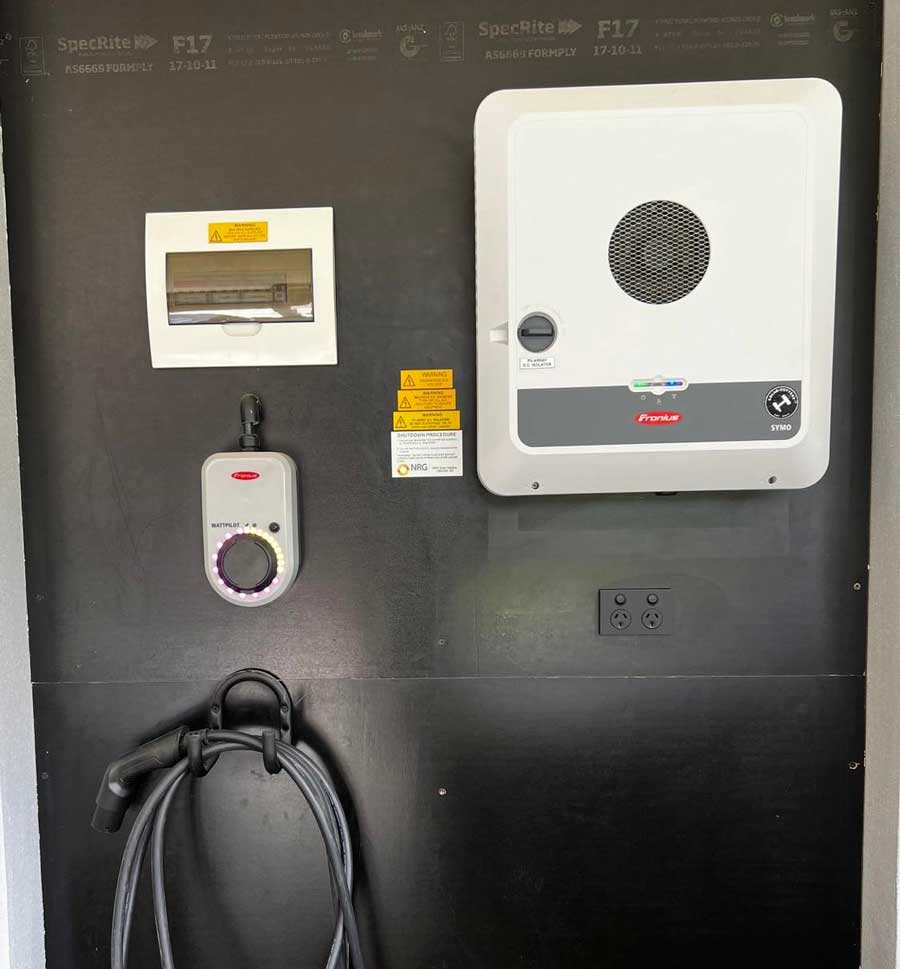
An Australian Wattpilot installation next to a Fronius Gen 24 inverter. The Wattpilot is bottom-left, just above the coiled charging cable. Image: NRG Solar
Ronald has written up a detailed Wattpilot review here. Bear in mind you should buy a 22kW unit, no matter how slow your car AC charges at – read Ronald’s post to discover why.
The portable version is a nice feature for people who expect to park in places offering an industrial power socket:
The Wattpilot is a sensible choice if you own a Fronius inverter with a Fronius Smart Meter. That’s because the Wattpilot relies on the Fronius Smart Meter to do ‘solar smart charging’, where you only charge from excess solar power. According to the installers I talked to, it is a piece of cake to commission a Wattpilot with a Fronius solar system and works well without the need for yet another bulky current transformer in your meter box.
If you don’t own a Fronius inverter, I would not recommend a Wattpilot. Although you may still be able to solar smart charge using the Wattpilot’s OCPP software interface, it’s a safer bet to buy a charger not specifically aimed at Fronius owners.
Interestingly, the Wattpilot is not manufactured by Fronius1 but by fellow Austrian company Go-e.
The Fronius Wattpilot retails at around $1,800 plus installation. Installation cost will mostly depend on how much cable needs to be run and whether you need much switchboard work.
Sadly the Wattpilot is only warranted for two short years. Sad face.
Best EV Chargers 2023: Second Place – Myenergi
Myenergi is an English company founded in Grimsby in 2016. Their current home EV charger offering is the Zappi 2, available in 7kW single-phase or 22kW 3-phase. Each version can be either tethered with a 6.5m cable or untethered.
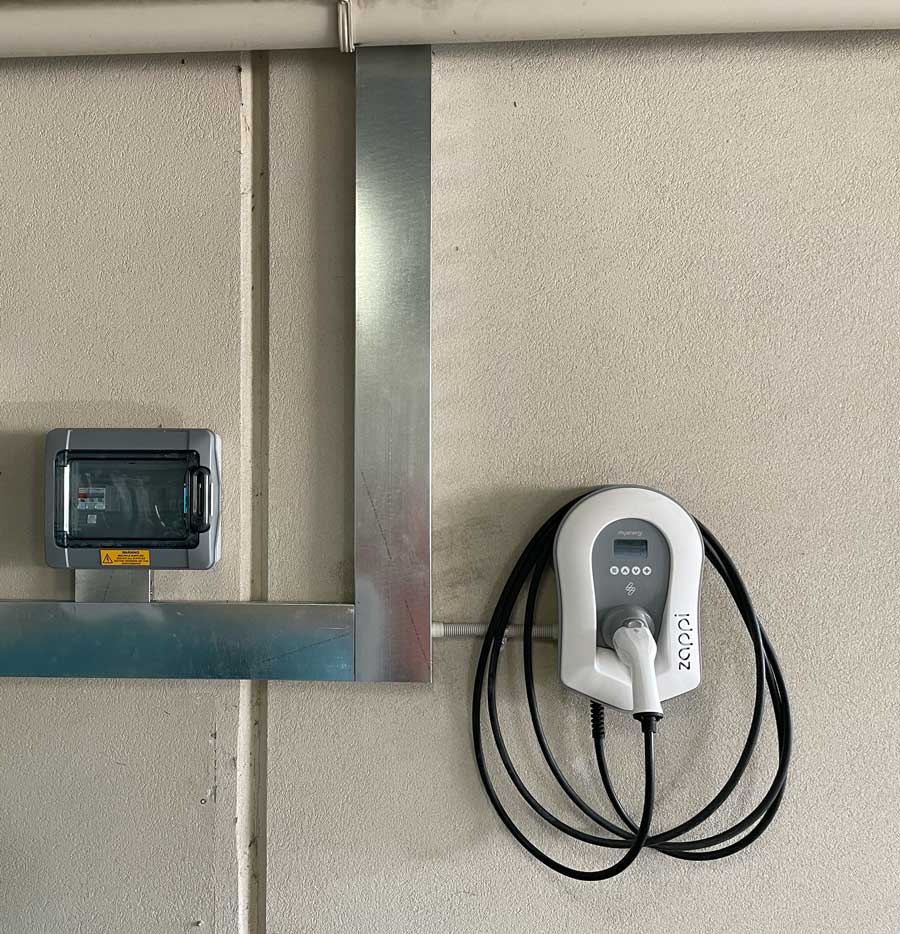
A myenergi Zappi 2 installed in an Australian garage.
The Myenergi Zappi 2 does one thing well: solar smart charging using a current transformer (CT) in your switchboard2. The CT can be hard-wired or wireless by buying a ‘harvi’ wireless transmitter box3.
One big miss in the Zappi 2’s spec is no OCPP compatibility. This means you can’t use it with third-party controllers or apps such as ChargeHQ that rely on OCPP to control and monitor the charger4. If you want to integrate your Zappi 2 into a home automation system in the future – or with a dynamic tariff, the lack of compatibility with this open standard will greatly reduce your options to do that.
Zappi fans will be pleased to learn that according to this consultancy, myEnergi appears to be working on OCPP compatibility for future Zappis. Smart move.
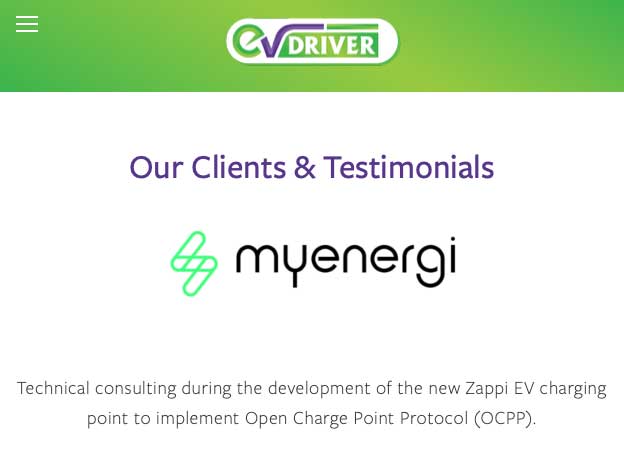
Something to watch out for if you decide to buy a Zappi: ask your installer for a Zappi with built-in WiFi. Myenergi has only just started putting WiFi into the Zappi 2s in the UK, and I suspect there is a lot of stock in Australia that does not have built-in WiFi yet.
Zappi 2s cost about $1,300 for the untethered single-phase version up to around $1,700 for the 3-phase tethered version, and are warranted for three years.
Best EV Chargers 2023: Third Place – Tesla
Tesla’s ‘Gen 3 Wall Connector’ is sleek, low-cost and simple. A bit too simple, in my opinion – as it lacks native solar-smart charging and OCPP, and you can’t buy an untethered version. It comes with a 7.3m cable.
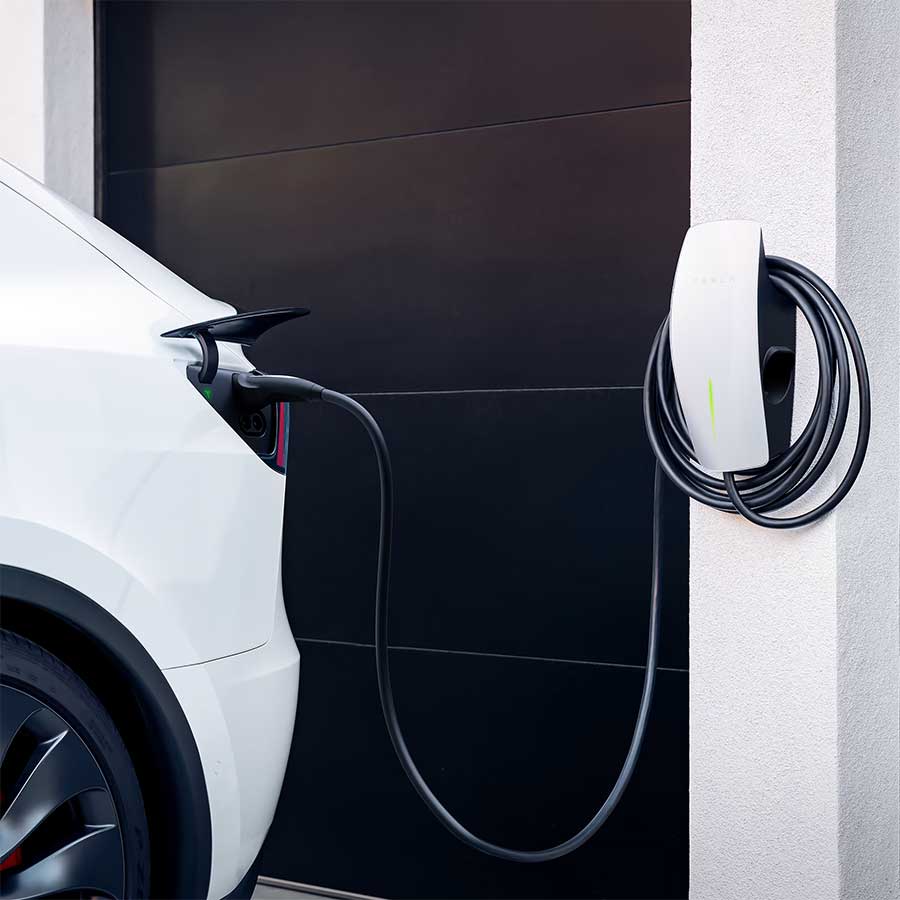
The Tesla Gen 3 Wall Connector. The home EV charger from Tesla.
The Tesla Wall Connector will charge any EV, not just Teslas, and is reliable. There is only one model. It can be configured for single or three-phase supplies.
Last week Tesla released a software update in the US that allows smart solar charging – but only if you own both a Powerwall and a Tesla car. This is something Tesla owners in Australia have been able to do with the Charge HQ app for ages.
Don’t buy a Tesla charger if you want smart solar charging for a non-Tesla. It won’t work. But if you want a home charger without any smarts for non-Tesla car owners, the Tesla Gen 3 Wall Connector is hard to beat – it’s cheap and reliable; at only $750 plus installation.
Best Value EV Chargers In Australia 2023
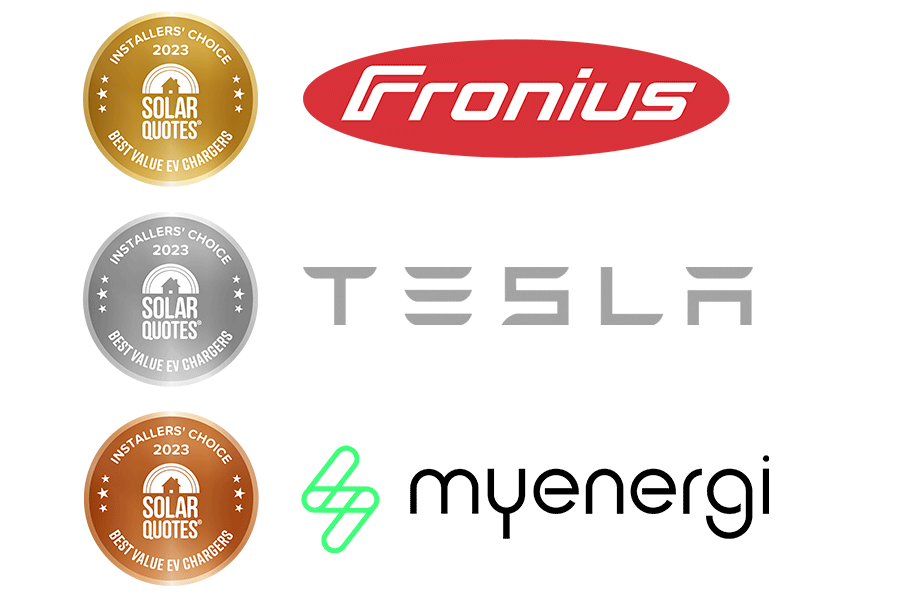
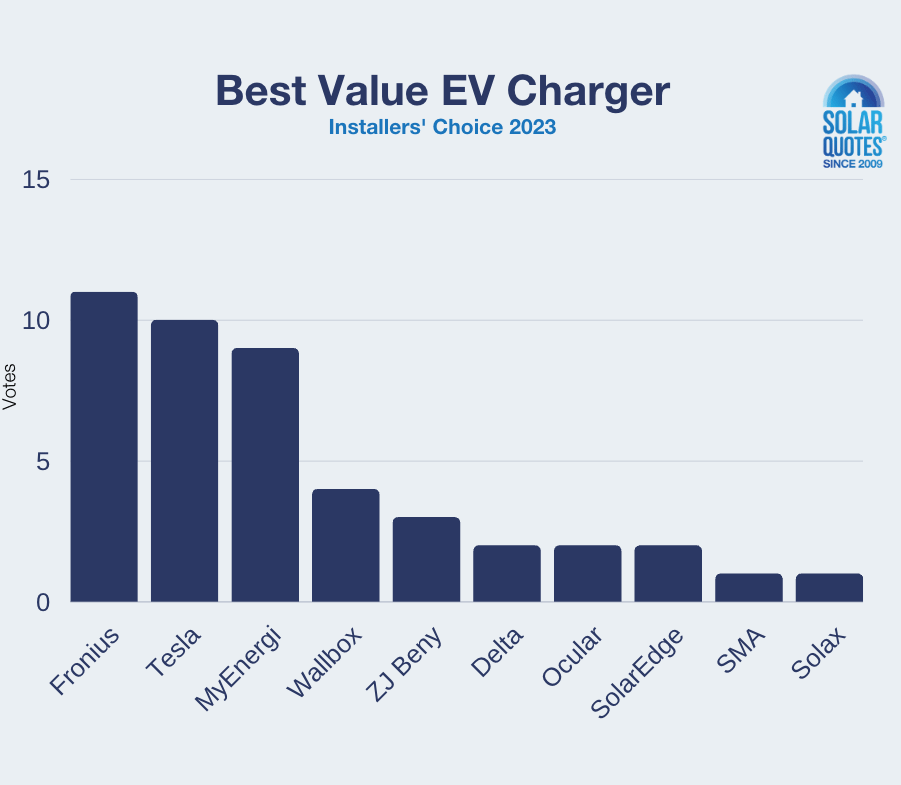
The ‘best value EV chargers’ podium contains all the ‘best’ winners but with Tesla and MyEnergi swapping places – probably reflecting that the Tesla device is much cheaper. It shows how immature the EV charger market is in Australia, with installers mostly sticking with the same three well-known brands. Also, note the very low vote counts. Does this suggest most installers think home EV chargers are too expensive, considering they are pretty simple devices?
Home EV Chargers: Best After Sales Support In Australia 2023
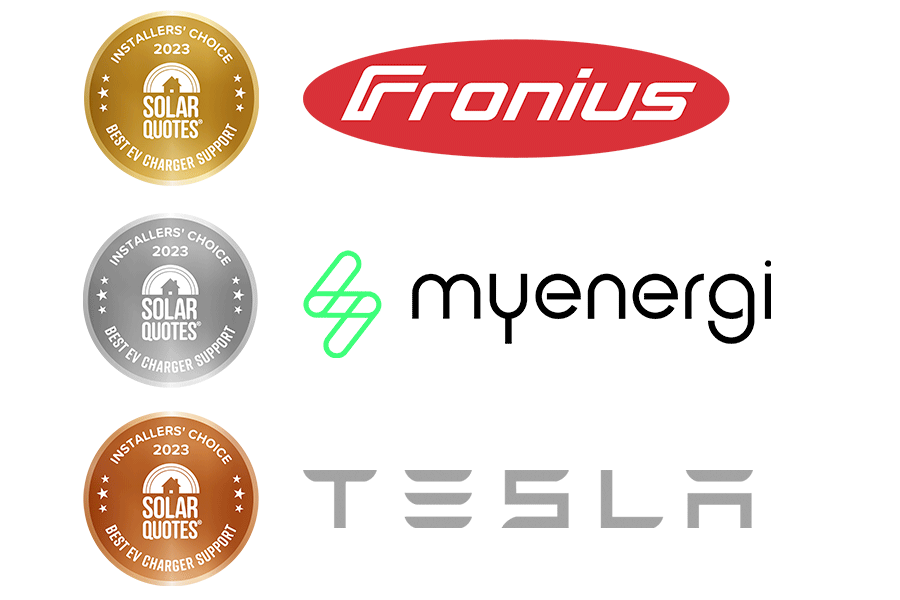
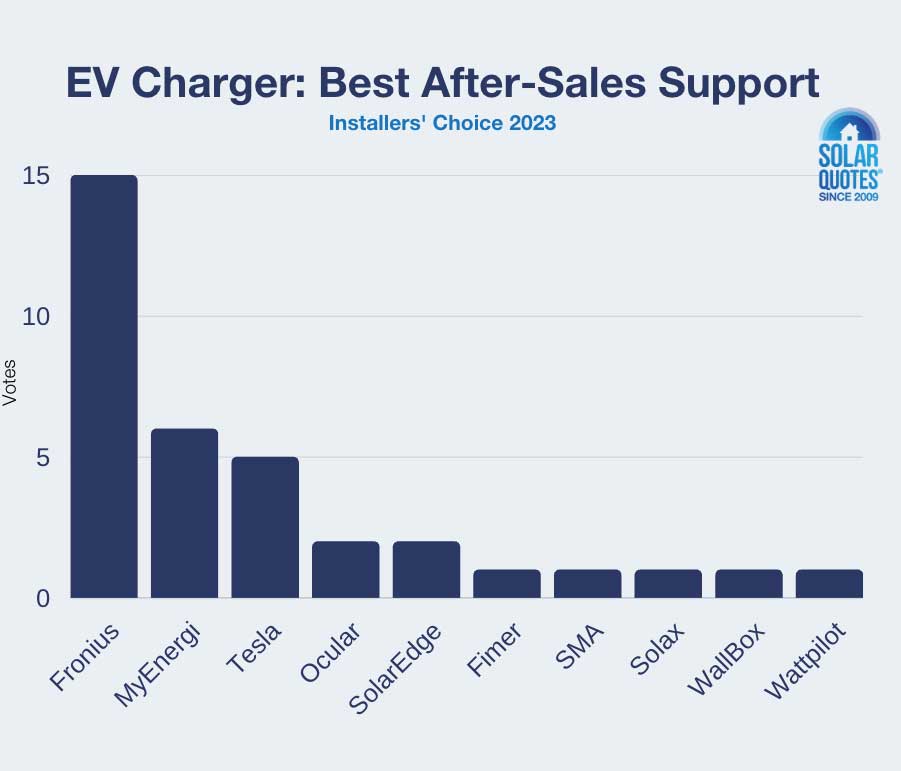
Fronius strikes again, grabbing the top spot for the best after-sales support in Australia. It seems their customer service is as top-notch as their chargers. MyEnergi and Tesla follow, again leaving no room on the podium for the other EV charger manufacturers.
So there you have it. Congratulations to Fronius, MyEnergi, and Tesla for outstanding performances in the Installers’ Choice Awards for 2023. While some installers may still be getting acquainted with electric vehicle chargers, it’s clear that these brands are leading the way in Australia’s home EV charger market in 2023.
And isn’t it just amazing how much Australian solar professionals love Fronius? Next thing you know, they’ll be getting Fronius tattoos. Oh, wait…
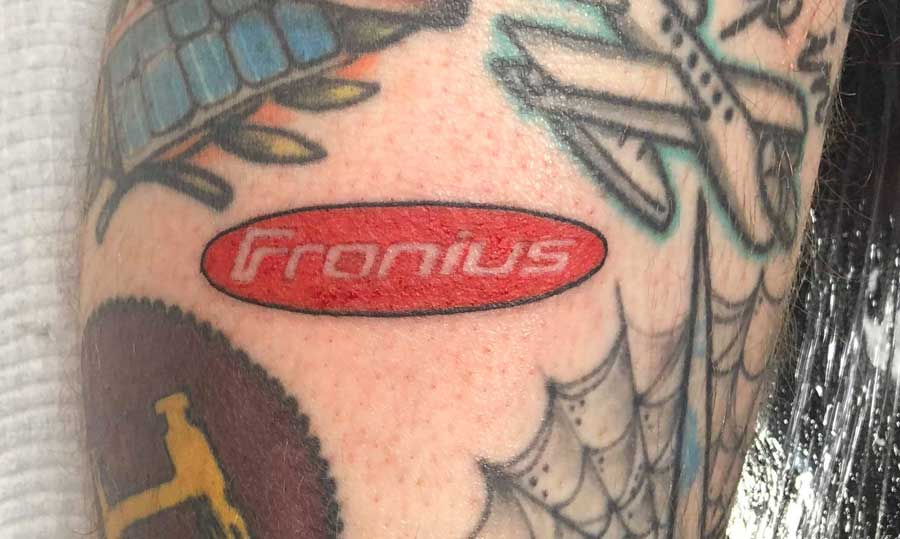
Discover everything you need to know about EV charging in my 101 guide (which includes the brands I recommend); and you can compare home EV chargers side-by-side here.
Also check out other SolarQuotes Installers’ Choice Awards 2023 results; for the best solar panels, best home batteries and best inverters – as voted by Australian installers.
Footnotes
Hat tip to Mark Stevens in this comment. ↩
Or three CTs if you have 3-phase, or four CTs if you have 3-phase and a single-phase battery. ↩
Although if you have to run power from the switchboard to the Zappi, you might as well run the CT cables too. ↩
If you will only ever charge Tesla vehicles, OCPP is not required as you can bypass the charger entirely and talk to the Tesla car directly via the Tesla API – but bear in mind this is not officially supported by Tesla and access could be pulled at any time… ↩